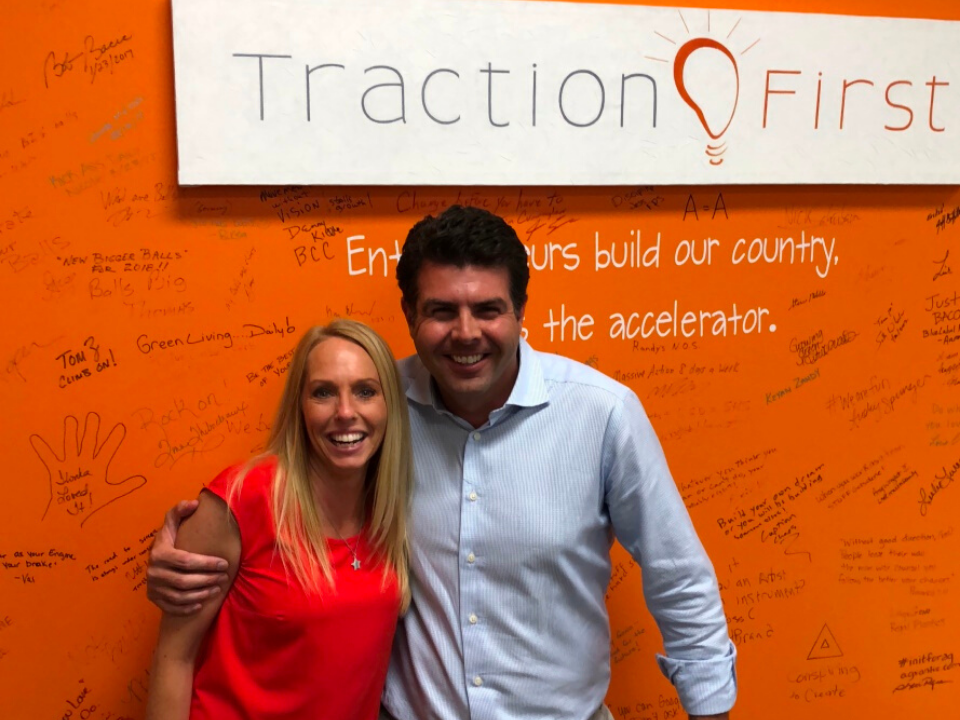
Let the Silence Do the Heavy Lifting
September 14, 2018
The Power of Vulnerability
December 12, 2018
Interviewing is not always the domain of human resources. When you find yourself in the interviewer seat as a business leader, these tips will help you get the information you need to make better hiring decisions.
“A typical interview is a conversation between two liars. The interviewer will tell the candidate to come and join us in paradise…it is a spectacular place, look at the integrity…we change the world, society… And the candidate who is desperate to get the job will say that the day I join you will be like walking in paradise.“
This is how Claudio Fernandez-Araoz, a global expert on talent and leadership, describes the interview. In considering the qualities of a useful interview, we need to consider these steps:
- The first is to be sure that you are a good listener. The most important talent in interviewing is listening, not talking. Yet many business leaders are great talkers and not so good at listening.
- Second, what are you looking for? Prepare a profile of the traits that would be associated with the “A player” in this situation.
- Third, be sure you understand the legal pitfalls, those questions which should not be asked because the answers could reveal discrimination on the basis of race, color, sex, religion, national origin, marital status, pregnancy, age, or disability.
- Fourth, the interviewer should select the questions to be asked, and they should be prepared in advance and studied. This does not mean memorized, but it does mean that the interviewer should not be reading them for the first time.
- Fifth, in addition to knowing what not to ask, you should have some ideas of questions that are particularly well-suited to your goals. For example, if you are interviewing to find a new leader, questions may be slightly different than interviewing to find a reliable worker.
- Sixth, review a collection of effective interview and follow-up questions.
- Finally, review the process of examining the interviewee’s answers and comparing them with the traits that you are looking for.
Are you a good listener?
Here are some signs that your listening skills need improvement:
- If you finish a conversation without asking questions to clarify what was said, you may not have listened effectively.
- If you jump in to finish what the other person started to say, you are talking when you should be listening.
- If you ever feel distracted when someone is talking, then you are not listening effectively.
- If you ever feel that you are talking too much, this may be a sign that you are not listening enough.
- If you ever get defensive when you hear things you disagree with, you are likely to start talking instead of carefully listening.
- If you lose eye contact with the person you are talking with, you will give the impression that you are distracted.
- Effective listeners don’t ask the next question too quickly. They use “silence is golden” to get more information. They understand that most people find that silence makes them nervous. If you stop talking, the interviewee is likely to fill the silence by making conversation, and that will provide more information about the attitudes and priorities of the person you are interviewing.
When the answer does not seem to fit the question, ask the question again to be sure that it was heard and understood, and then listen carefully to the answers.
It is a strange fact that most of us have been exposed to training courses to improve our skills in presenting, but it is hard to find any course material for good listening. Many executives admit that they are better at talking than at listening. Yet listening skills are absolutely essential to conduct an effective interview.
Legal pitfalls
In general, it is dangerous to ask any question that suggests that you are discriminating against the interviewee for any reason. Here are examples of inquiries to be avoided:
- Where were you born? (Or where were parents and other relatives born?)
- What is the maiden name of your wife (or mother)?
- What is your height or weight?
- Do you have any physical disability?
- Do you rent or own your home, and do you own a car?
- Do you have an arrest record?
- What is your marital status, and your future marriage plans?
- Are you pregnant, and what are your future plans for children?
- Is your spouse employed?
- Do you go to church, and where?
- What is your preferred political affiliation?
Tips for a successful interview
The best meetings are those that cause the interviewee to do most of the talking. By reviewing your questions first, you can ensure that the interviewee will be talking 90% of the time. Here are some tips:
- Avoid “yes or no” questions. Hypothetical situations are one way to accomplish this. They start with “what would you do if……”
- Positive is better than negative. Don’t ask the interviewee to describe weaknesses, but instead inquire about those areas where the person is striving to improve.
- Comparisons can be revealing. Where possible, ask the person to compare and contrast two situations that are likely to be encountered.
- Get specific! When the interviewee makes a claim, ask that person to describe an example of how the successful event was completed.
- Repetition is vital. This is particularly true if the interviewee’s first language is not English. If the answer seems strange, repeat the question to be sure that it was properly understood.
- The two-step question process can be valuable. For example, it is always useful to follow a “how” question with a “why” question. Be prepared!
- Before the interview, always write your questions in advance. Take a critical look at the material you have prepared. How well do the questions relate to the profile of what you are looking for?
- Consider the order in which the questions are asked. Practice reading them.
- Be certain that the interview will be totally free of any interruptions. You cannot be a good listener in a noisy environment.
Some useful questions
- Please take a few minutes to tell me what you would most like us to know about you.
- Looking back on your career, describe the person who has had the most influence on you? Why?
- Describe the best supervisor you ever had.
- Tell me about a complicated situation when you had to learn a lot and learn it quickly. How did you go about it? Was the outcome successful?
- Tell me about a time when you discussed job performance with one of your people.
- What will you do if one of your team members challenges your ideas or your suggestions?
- Tell me about a time when you went above and beyond what was normally expected.
- Are you good at analyzing problems? Give me an example of digging more deeply than expected to find the facts.
- How would you contribute to our company’s growth and profitability?
- Tell me about a time when your skill at listening allowed you to help someone solve a problem.
Evaluating the interview
First impressions should be recorded quickly, but it is even more important to compare responses to traits that you are looking for. If you are looking for a warehouse supervisor, the requirements will be different from the decision about whether to promote someone to the senior management team. If you are looking for a financial officer, the traits will be different from the requirements to be a sales manager. When you are looking for an analyst, the process is different from the search for a salesperson.
If you are interviewing to discover promotability, then you should assess emotional maturity, leadership potential, listening skills, and problem-solving capabilities.
When the process is to learn more about engagement, you need to measure the interviewee’s skills as a communicator. Does the respondent have a sense of purpose and a set of personal goals? Are those goals similar to the goals of your warehousing organization?
Everybody can play
Many people feel that interviewing is a skill needed only by human resources specialists. While the HR people certainly need interviewing skill, everyone else in the organization can benefit from developing similar talents. The HR people are not infallible, and when you conduct an interview you are very likely to learn something that the HR interviewer missed.
Many senior executives feel that they should spend a significant portion of their time interviewing. They believe in management by asking good questions. They know that one of their most important jobs is to identify future leadership. They are concerned with management succession, finding the rising junior managers who have the potential to be the senior team in the future. They recognize that the interview is one of the best ways to accomplish this.
Get more hiring tools, including our Hiring for Values Interview Questions here.
Read more:
- How Seasoned Executives Make Hiring Mistakes
- How Behavioral Interviewing Can Save Your Business
- Help! I’m Hiring Someone Tomorrow…What Do I Do?
A version of this post was originally published on the Ackerman Warehousing Forum, Volume 33, Number 10, September 2018.
Image licensed via Canva.




